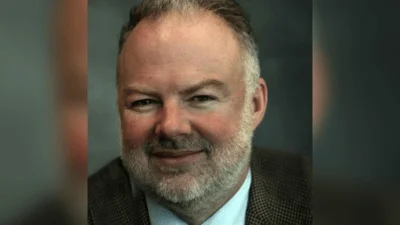Two ballot drop boxes in Ohio. | mobile.twitter.com/lakecountyboe
Two ballot drop boxes in Ohio. | mobile.twitter.com/lakecountyboe
Legislation now in the Arizona state Senate that would ban the use of unmonitored ballot boxes during election cycles would eliminate a weak link in ballot custody, the bill’s primary sponsor told Grand Canyon times.
House Bill 2238, which passed the state House March 3 and got a "do pass" nod from a Senate committee last week, would make ballot custody more secure during election cycles, Rep. Jake Hoffman (R- Queen Creek) said.
Hoffman referred to unmonitored ballot drop boxes as "the weakest link in the chain of custody" for voters' ballots.
The bill would bar the use of unmonitored drop boxes for ballot collection, according to the bill's text. Drop boxes that have 24-hour monitoring or are located inside a polling place are exempt, as are USPS mailboxes for mail-in voting.
Other bills in the state Legislature, such as Senate Bills 1571 and 1058, also refer to election drop-boxes.
Hoffman introduced HB 2238 into the state House Jan. 19.
"This bill doesn't prohibit ballot drop boxes as long as they are staff monitored," Hoffman said shortly after the bill was introduced. "As long as they have someone there, we have existing laws in place regarding and governing the dropping off of early ballots."
The bill passed the House on a largely party-line vote, 31-27 with two Democrat abstentions.
Shortly after the bill arrived in the Senate, it was referred to the Senate Government Committee, which voted 4 to 3 March 21 for the full Senate to "Do Pass.”
The bill now awaits a final vote on the Senate floor.
Facebook founder Mark Zuckerberg donated $350 million to the nonprofit Center for Technology and Civic Life (CTCL), prior to the 2020 presidential election, according to the Capital Research Center. The CTCL granted almost the entire amount to hundreds of local election officials nationwide.
The funds were donated to support election infrastructure, including ballot drop boxes and drive-thru voting, according to the Amistad Project.
American Public Media reporter Tom Scheck reported during National Public Radio and American Public Radio (APM)'s coverage of the Zuckerburg donation, that much of the security around ballot boxes would not have been possible without the donation. Scheck referred to county workers who filmed opening ballot drop boxes and the collection of ballots before they were delivered to an election office.
Chester County, Pennsylvania, Voting Services Director Bill Turner said in the NPR/APM report that body cameras and some drop boxes in that county would never have happened without the Zuckerburg donation. The county received $2.5 million of the Zuckerberg funds.
"Honestly, I don't know what we would have done without it," Turner said.
"Conservative groups claimed the grants helped sway the election in favor of Joe Biden," Scheck said in his comments on NPR. "But an APM Reports analysis of voter registration and turnout in Georgia, Pennsylvania and Arizona shows no difference between counties that received grant money and those that didn't. The money didn't change the outcome but did make things run more smoothly."
In the same NPR report, Suffolk University political science professor Rachael Cobb said private money can give the impression that strings are attached.
"I don't think elections should be public-private partnerships," Cobb told NPR and APM. "They are public enterprises run by public institutions and ideally fully funded by public institutions.”






 Alerts Sign-up
Alerts Sign-up